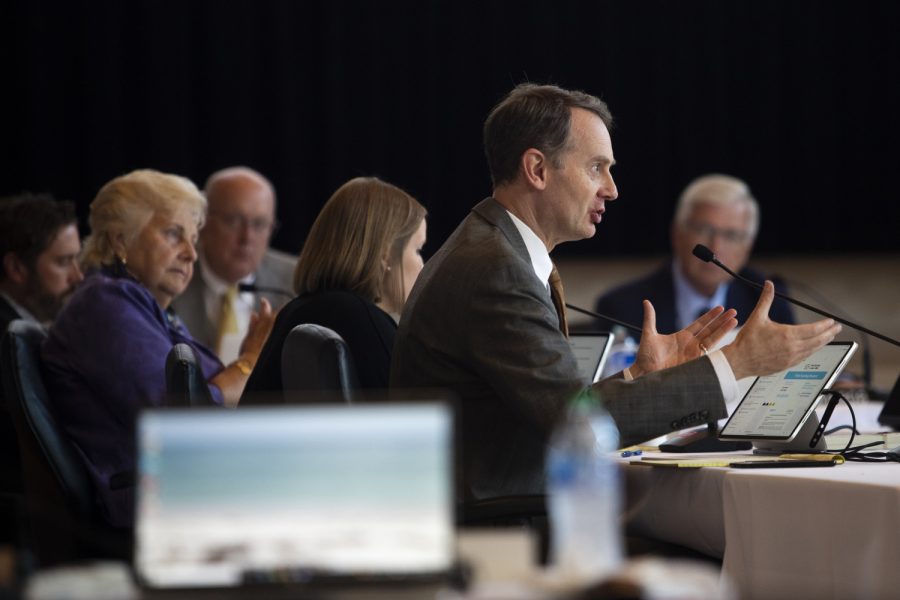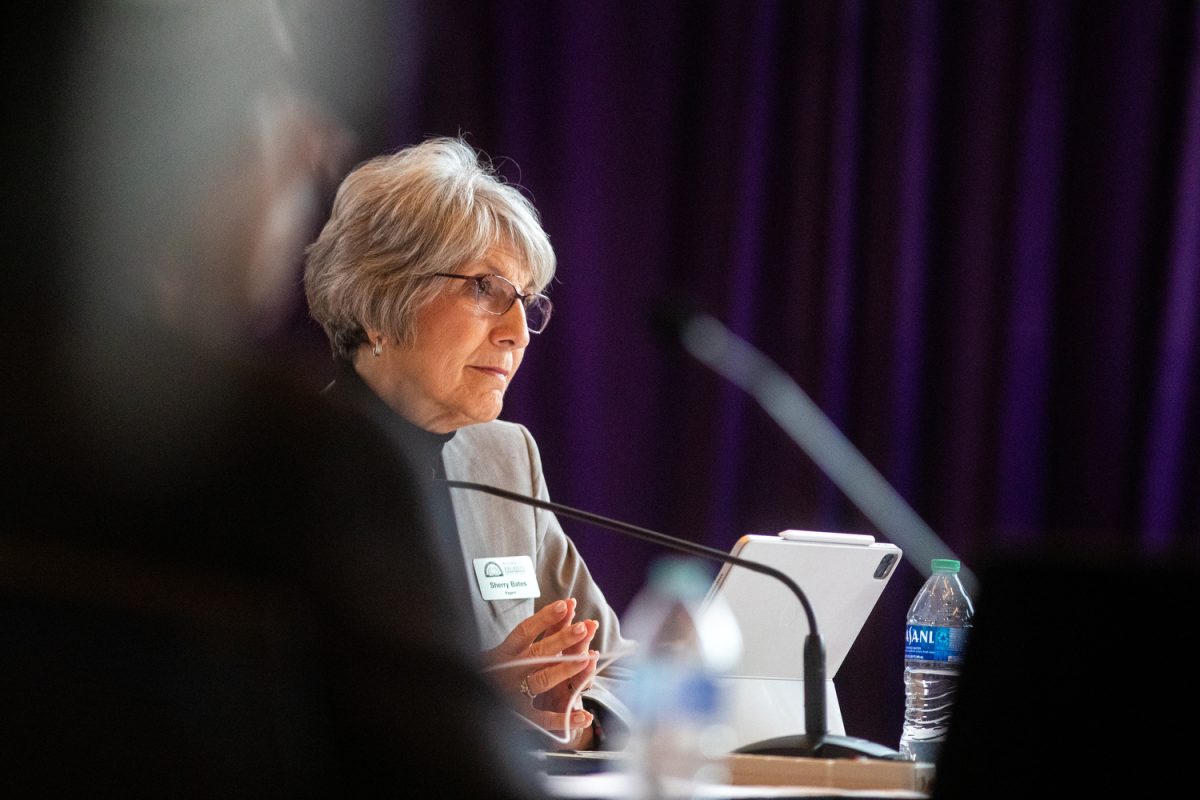Chuck Panzer didn’t think he had a drinking problem. But in 1988, he lost his job, received his third OWI, and was ordered to be evaluated at the Mid-eastern Council on Chemical Abuse center in Iowa City.
Volunteering himself for a 28-day stay in the residential program, the now 67-year-old hardly believed he could make it a month without drinking again.
He’s now 21 years sober.
MECCA, a not-for-profit treatment and prevention center for substance abuse and several other conditions, celebrated its 40th anniversary on Thursday with an open house, tours, and speakers.
Panzer, who attended the event, said he owes much to MECCA and he “couldn’t have done it himself.”
“At first, I thought I was a failure, because I’d lost my job because of drinking and all that, and I’d never failed at anything,” he said. “I like myself a lot better, I don’t have to drive with one eye in the rearview mirror, and other people like me.”
Although MECCA offers services for everything from gambling and drug addiction to dealing with HIV/AIDs, it was originally founded solely to aid alcoholics, said CEO Steve Estes. The most common issue clients come in for today is still alcoholism.
MECCA was founded in 1969 by a group of Iowa City citizens concerned with alcoholics struggling in their community, Estes said.
But from its humble beginnings, MECCA has grown exponentially in terms of staff size and geographical reach, he said.
With more than 170 professional staff members, MECCA now covers 37 of Iowa’s 99 counties with “face-to-face” services and all 99 counties with residential services.
For UI graduate Shannon Wagner, the MECCA vice president of community affairs, being a part of the growing organization has been a positive experience.
“It’s really neat to see us grow and the impact you have on people’s lives,” Wagner said. “The best part of it is when you see people are doing well … [and] put their life back together.”
For Estes, the past 40 years of growth is just a promise of an even bigger future to come.
“If you can imagine what has been done from those 40 years from that little itty-bitty halfway house and a couple of counselors, and you look at us now,” Estes said. “We serve around 5,000 people at our organization every year … and if you add the prevention piece to it, we touch directly 15,000 lives a year. Multiply that times 40.”
Former board member Dick Myers, who started working in alcohol treatment 41 years ago, gave a speech at the open house, touching on the center’s future.
But instead of reciting numbers or future technologies, he told a story.
He spoke about a woman he had hired while she was struggling. Years later, after he retired and was dealing with health problems, the woman tracked Myers down.
She came to pray for him.
Myers said her selfless action immediately made him think of MECCA.
“That’s what this place is all about,” he said. “Every day in this organization there are people … who do something for somebody else that nobody knows anything about. That’s why there’s a future for MECCA.”






